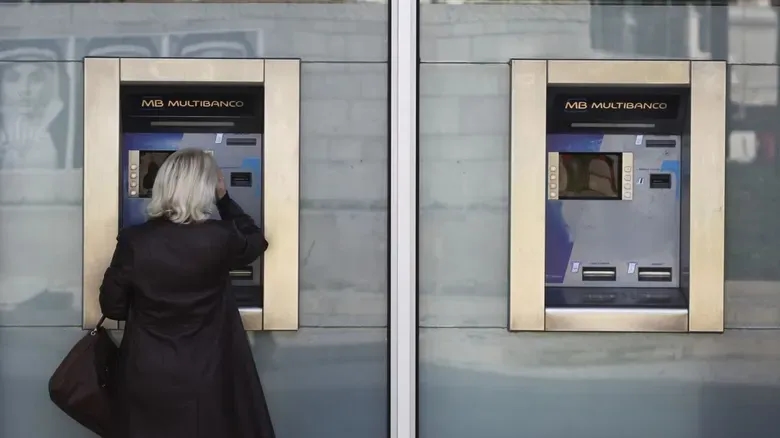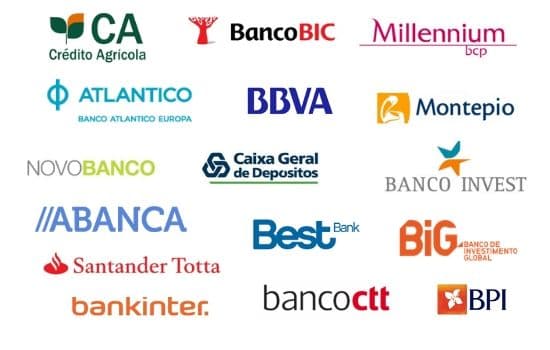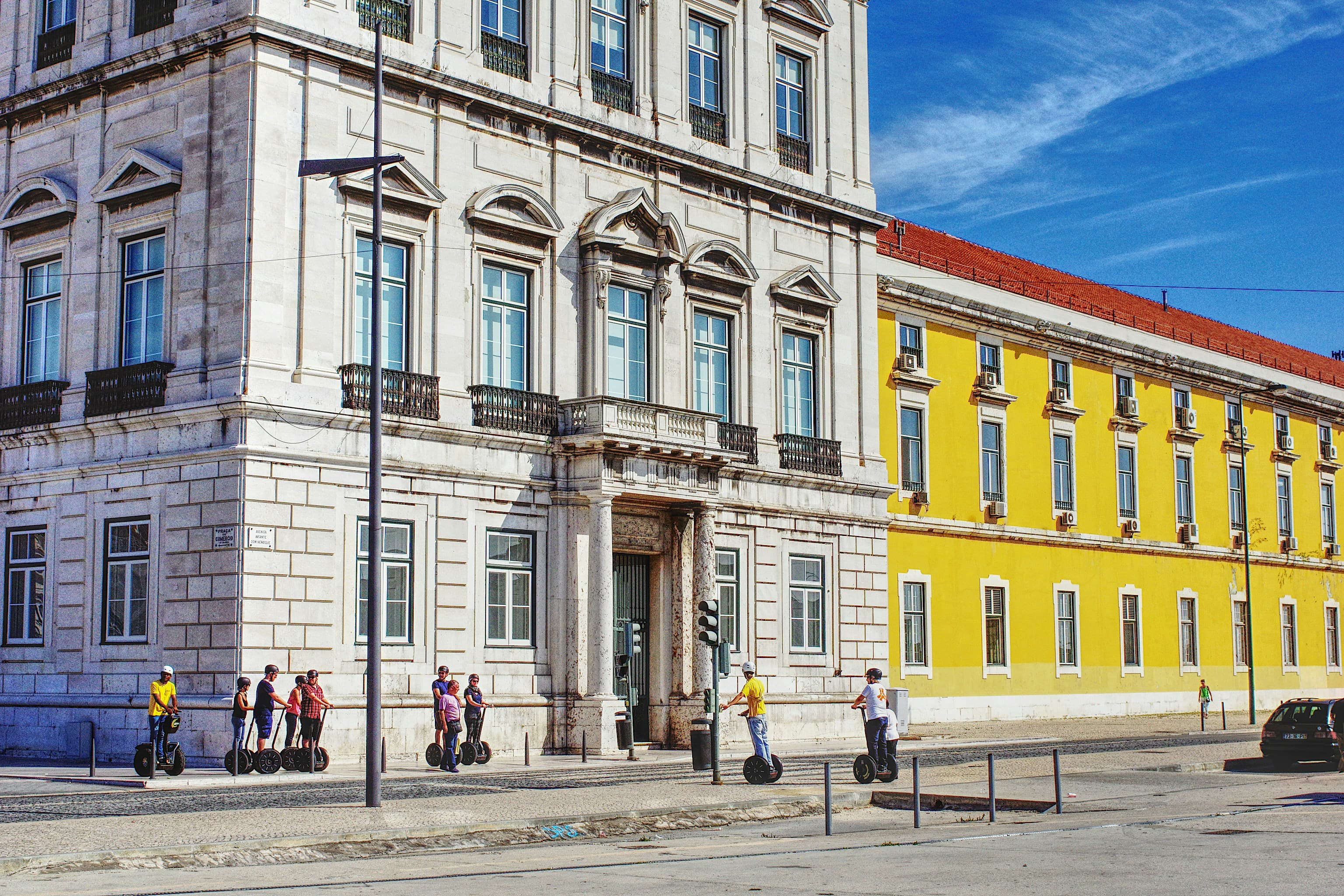
When travelling to or living in Portugal, withdrawing cash may seem straightforward : you find an ATM, insert your card, and take your money. However, behind this simplicity, there can be hidden fees, poor practices, and choices of card or ATM that can significantly increase costs. This guide will help you understand how to withdraw money safely, minimise fees, and avoid unpleasant surprises.
The Multibanco System, The Network to Prioritise for Portuguese Cards
In Portugal, the Multibanco system is the most widely used for ATM withdrawals and is considered reliable and secure. It is present in towns, cities, train stations, and supermarkets and is the national network used by virtually all Portuguese citizens. With a Portuguese bank card, such as those issued by Caixa Geral de Depósitos or BCP, withdrawals at Multibanco are usually free or have very low fees.
If your bank account is abroad, not all ATMs accept international cards (Visa or Mastercard), and additional fees may apply from your home bank.
Where Fees Appear, Pitfalls to Be Aware Of
ATMs outside the banking network
Some private ATMs, such as Euronet machines, or those located in shops or highly touristic areas, charge high withdrawal fees. They also often offer currency conversion at the ATM screen, which is almost always unfavourable.
Dynamic Currency Conversion (DCC)
When an ATM offers to withdraw in pounds sterling (GBP) or US dollars (USD) instead of euros, it may seem convenient, but the exchange rate applied is usually poor, and hidden fees may exist. It is almost always recommended to refuse the conversion and request the transaction in euros.
Withdrawal limits and foreign bank fees
Even if the Portuguese ATM does not charge a fee, your bank abroad may apply a percentage on international withdrawals (especially outside the EU) ; a fixed fee per withdrawal ; currency conversion costs.
These fees vary significantly between banks, so it is advisable to check before travelling or using your card abroad.
Additional fees for foreign cards
For cards issued outside Portugal, you may encounter transaction fees for operations outside the SEPA zone ; commissions for using non-affiliated ATMs ; conversion fees if your account is not in euros.
Legal Rules and Transparency
Portuguese law and European Union regulations require transparency of banking fees.
Withdrawing cash from a Multibanco with a Portuguese card is generally free.
Any fees applied to Portuguese accounts must be clearly displayed before confirming the transaction.
Practical Tips to Avoid Fees
Use cards with low or no foreign fees
Choose banks or cards that offer international withdrawals without charges or with minimal fees. Many fintechs or neobanks provide better conditions for travellers.
Withdraw larger amounts less frequently
Multiple small withdrawals multiply fixed fees. Withdrawing a sufficient amount for several days reduces costs, but never carry too much cash for safety reasons.
Always check the ATM
Confirm that the ATM belongs to a Portuguese bank and that all charges are clearly displayed. Always decline currency conversion.

Avoid ATMs in tourist areas, airports and stations
These locations usually have higher fees; prefer ATMs in bank branches within cities.
Inform your bank before travelling
This prevents card blocks due to security alerts and may also avoid automatic fees, some banks offer preferential rates if they know you will be abroad.
Use local cards or open a Portuguese bank account
If staying long-term, a Portuguese card greatly reduces fees. Payments via MBway also make day-to-day management easier
Check fees on mobile banking
Many bank apps or websites display all potential charges before withdrawing cash.
Useful Figures
Daily withdrawal limit at Multibanco : approximately €400, with individual operations around €200. Limits can often be increased via the bank app.
Standard account maintenance fees are between €5-€7 per month ; and high fees at private ATMs (tourists report unfavourable exchange rates and excessive charges, especially near tourist hotspots).
What Portuguese Banks Say
Banks such as CGD, Millennium BCP, Novobanco, Santander Portugal are part of the Multibanco network, guaranteeing broad ATM access.
Some banks charge annual or monthly account fees, but these do not usually apply to cash withdrawals from the network.
Revolut, Wise, and Neobanks
Revolut : free withdrawals up to your plan limit, after which fees apply.
Wise : Multibanco generally charges no fees on the ATM side.
Always check your plan’s free withdrawal limit and the number of fee-free withdrawals allowed.
Practical Example
Cindy, a British traveller in northern Portugal, does the following :
Locates a Multibanco in a main bank branch in Porto.
Always refuses the conversion to pounds.
Withdraws enough cash for several days and minor purchases at local markets.
Avoids ATMs in tourist-heavy areas like Ribeira.
Result : minimal or nearly zero fees thanks to following best practices.
Golden Rules
Confirm the ATM is a Multibanco or belongs to a Portuguese bank.
Always withdraw in euros.
Withdraw sufficient amounts to minimise the number of transactions.
Compare local vs foreign cards and their fees.
Avoid private ATMs, especially in tourist areas or airports.
Open a Portuguese bank account if staying long-term ; many shops do not accept international Visa or Mastercard.
Share this article
Suggested articles

Payment Methods in Portugal Cards, MB Way, and Cash
Portugal attracts millions of visitors every year, as well as a growing population of expatriates from Europe, Africa, and the Americas. For newcomers, understanding how payment methods work in the country is essential for managing a budget, making everyday purchases, and avoiding unpleasant surprises.

Mortgage Loans in Portugal : Conditions and Rates
Portugal attracts numerous people every year (expatriates, investors, and future homeowners) drawn by its climate, quality of life, and property prices that are still relatively affordable compared to other European countries.

Money Transfers France ↔ Portugal: Best Solutions
More and more French citizens are living, working, or investing in Portugal. Whether expats, students, retirees, or entrepreneurs, money transfers between France and Portugal have become a daily reality. But with hidden fees, varying transfer times, and sometimes unfavorable exchange rates, choosing the right transfer method is essential.

Opening a bank account in Portugal : how to do it
You’ve decided to settle under the Portuguese sun, coffee in hand and maybe a pastel de nata for dessert ? Excellent choice. But before you fully relax, there’s one essential step : opening a local bank account. Because yes, even in Portugal, things “run smoother” when you’ve got a Portuguese IBAN. Here’s how to do it, without losing your mind, promise !

Online Banks and Neobanks Operating in Portugal
Portugal, known for its hospitality and relaxed lifestyle, is also a country looking toward the future. In the financial sector, it is establishing itself as a European laboratory for digital banking services. With a young, connected, and tech-savvy population, online banks and neobanks have found an enthusiastic audience here.

Real Estate as an Investment in Portugal, Pitfalls and Opportunities
Investing in real estate in Portugal is a dream for many foreigners ! With sunshine throughout the year, a pleasant climate, and a high quality of life, everything seems to be in place for buying a house or an apartment in this small European country. However, behind this attractive image lies an essential reality : the Portuguese real estate market is not fully regulated. This creates both opportunities and potential pitfalls for investors. Understanding how the market functions and where the risks lie is key to making a successful investment.


